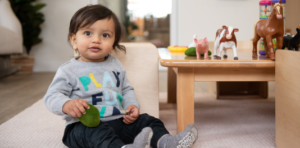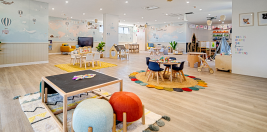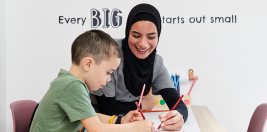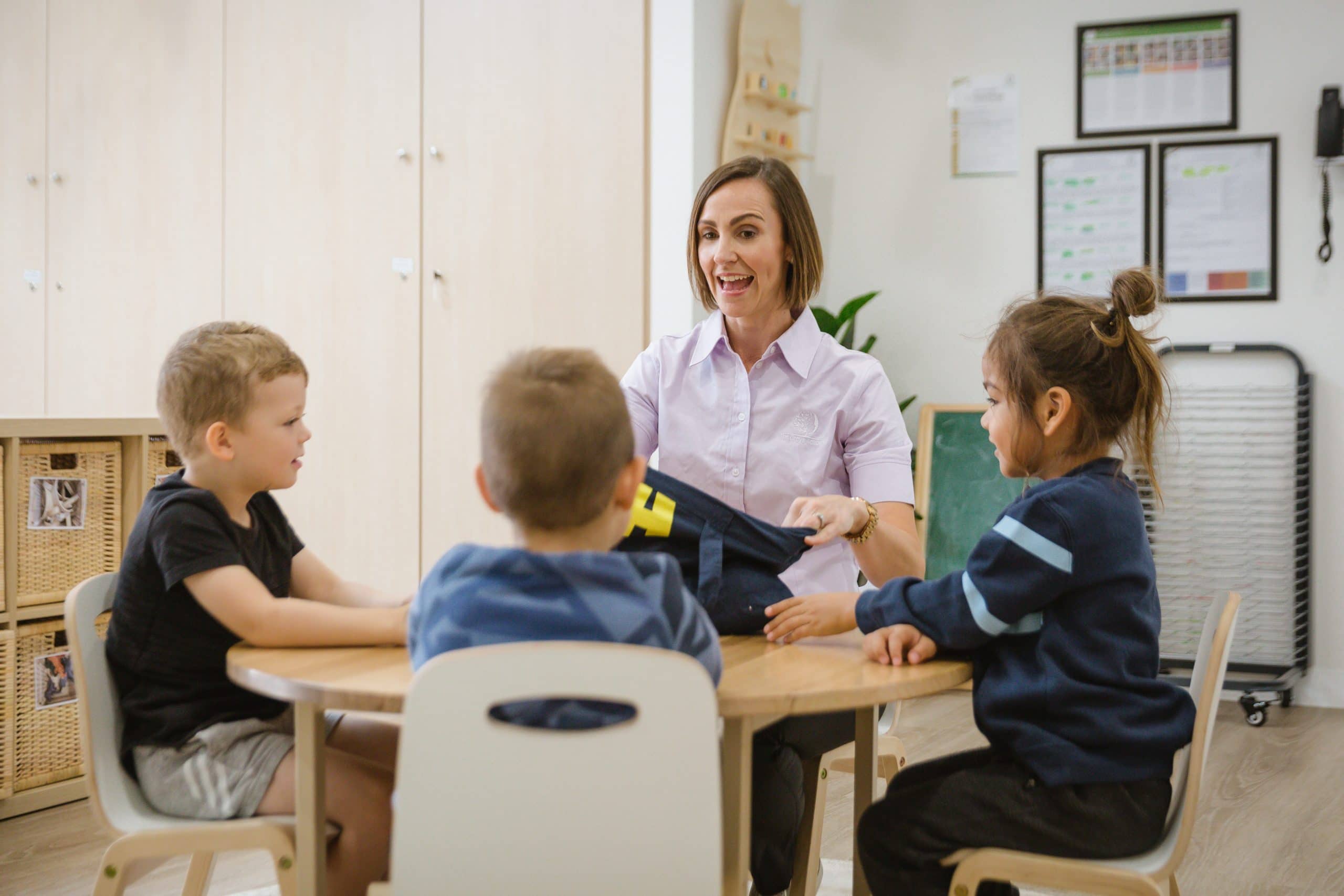
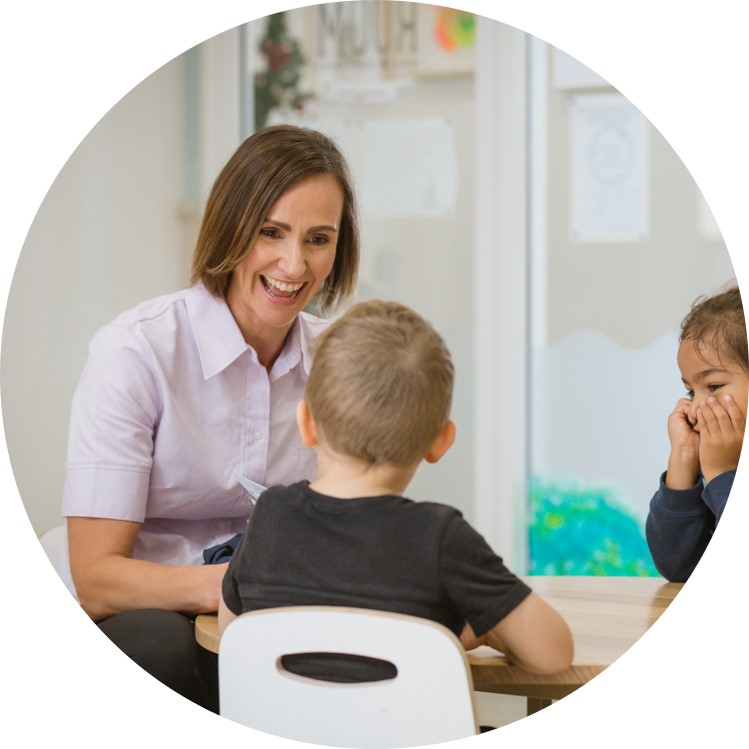
Sarah, our new Speech Pathologist, explains the importance of building good communication skills in children during their early years. She talks you through what you can do on a daily basis to support and build these skills too!
You’ve heard the sayings: “Children are like sponges”, “They grow up so fast”, “You’ll never get this time with them again”. Well here’s another one, “Communication is key.” At The Grove Academy, we’re investing in children’s futures by recognising the importance of early communication skills. In my new role as Speech Pathologist across The Grove Academy’s services I will be supporting children to use their communication as a key to unlock opportunities for life.
It’s never too early to think about developing children’s communication skills. Infants communicate with their parents and carers through crying, smiling, looking and cooing. Talking to your baby teaches them that we take turns in conversations and use our mouths to make sounds. Older babies use babble and sounds to communicate and can explain a lot even before they can use meaningful words. Take a look at this beautiful example of a parent and child interacting. https://www.youtube.com/watch?v=CejhQC9hUO8
As children get older and start to use words to communicate it is just as important to keep the words going. Between the ages of 2 to 3 years children want to find out a lot about themselves and increasingly, the world around them. Brace yourselves for a lot of ‘why?’ questions around this age… and be prepared to answer them! They will be understanding short instructions and starting to enjoy joining in with singing and rhymes. The words your child says around this age might not always make sense but it’s important to show them the way adults use words and sentences by modelling back to them the ‘grown up’ way of saying a word or sentence.
As children become preschoolers they may be speaking in increasingly longer sentences, enjoying telling stories and jokes and experimenting with their new range of words. Taking time to have a conversation or share a story with your child each day, free from distractions such as TV or smartphones can be hugely beneficial.
Not every child develops language at the same pace and it’s important to recognise differences and communicate at the level they need. If your child is struggling to understand or express themselves it is important to get advice from an Early Childhood Educator or Speech Pathologist.
Speech Pathology Australia estimate that 20% of Australian 4 year olds have difficulty understanding and using spoken language. We also know that children with language disorders are 6 times more likely to have difficulty with reading than those without.
Good communication skills open doors. Difficulties with communication that aren’t resolved in the early years can lead to persisting problems that impact on academic achievement and life chances. So let’s take time to talk to our children and give them the key.

